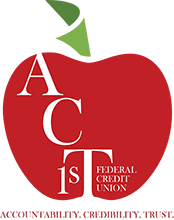5 Costly Car Loan Mistakes for 2024
Car buying can be a challenging experience and often comes with stress! We’ve compiled a list of some of the most common car-buying mistakes that can harm your financial health.
The next time you are car shopping, be prepared, and know what to avoid.
1. Don’t shop based on monthly payments.
Always think of the total purchase price versus what you can afford each month. When shopping at the dealership, don’t give the salesperson your monthly payment range. Instead, negotiate on the final purchase price of the vehicle. When you disclose how much you can “afford” each month, this leaves room for add ons and extra fees from the dealership, and you may be tempted to purchase a vehicle that exceeds your budget.
2. Avoid getting upside down.
If you own more on your current car than what it’s worth – resist the temptation to roll the negative balance into a new car loan. It’s better to live within your means and pay extra on the current car until you can build equity in your vehicle or break even.
3. Don’t be afraid to ask questions.
Question every fee, detail, and add-on you do not understand. When you walk away from the dealership, you will own the car and have full responsibility for the loan you take on.
4. Know your credit score before you go.
Don’t let the dealership define your creditworthiness. Your credit score determines the interest rate and loan terms offered to you. Let the credit union provide your credit score and loan prequalification before you shop. Just like you do not enter the grocery store without a form of payment, don’t shop for a car without your loan prearranged with the credit union. It will save you money and time!
5. Void high markups on add ons.
Credit Life & Disability, Gap Insurance, and Car Warranties are products sold thru the car dealership that often have a high markup. The credit union offers these at a much lower price as a benefit of your membership.
Ready to car shop? Let us help!




